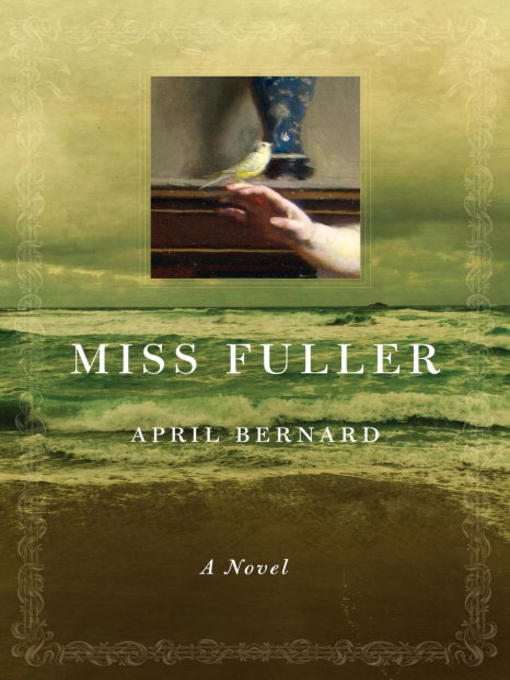What does one sensitive but ordinary woman makes of a publicly disgraced woman like Fuller, and how do women make use of what they learn from other women? Miss Fuller is a historical novel that also poses timeless questions about how we see and treat the exceptional and dangerous agents of change among us. And it shows the price that any one person might pay, who strives to change the world for the better.
It is 1850. Margaret Fuller--feminist, journalist, orator, and "the most famous woman in America"--is returning from Europe where she covered the Italian revolution for The New York Tribune. She is bringing home with her an Italian husband, the Count Ossoli, and their two-year-old son. But this is not the gala return of a beloved American heroine. This is a furtive, impoverished return under a cloud of suspicion and controversy. When the ship founders in a hurricane off Long Island and Fuller and her small family drown, her friends back home, Emerson and others of the Transcendentalist Concord circle, send Henry David Thoreau to the wreck in hopes of recovering her last book manuscript. He comes back declaring himself empty-handed--but actually he has found a private and revealing document, a confession in letters, of a strong and beloved woman's life like no other in the 19th century. Her account of the life of the mind and body, of experiences in Rome under siege, of dangerous childbirth and great physical and moral courage--are eventually revealed to her one reader, Thoreau's youngest sister, Anne.
She was the most famous woman in America. And nobody knew who she was.
- Women's History Month
- Staff Picks!
- Most Popular
- Available now
- Popular NonFiction eBooks
- Teen eBooks
- Hot reads for cold nights
- See all ebooks collections
- Available now
- Teen Audiobooks
- Most Popular
- Stephen King Thrillers
- Popular Non Fiction Audiobooks
- See all audiobooks collections
- Just Added Magazines
- Lifestyle
- Technology
- Fashion
- Home & Garden
- Cooking & Food
- See all magazines collections




